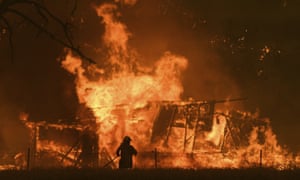My dad was just four-years-old when his father died.
Dad had two younger sisters and so effectively only a baby himself, he instantly became the “man” of the house.
 |
| My dad's swing-saw looked a lot like this. |
My grandfather, dad’s dad, was something of an enigma to me as anyone who actually knew him was dead before I arrived, and any record of his life is slight or simply doesn’t exist.
We do know that he owned and operated stables in Echuca’s main street, opposite the Catholic church and stretching through to High St.
He died when a horse kicked his head and we don’t know if that was instant or he died later. I could research it I suppose, but it is not in my nature to look back, despite knowing that preparation for the future is best founded on an understanding of the past.
Dad died in 1992, on my wife’s birthday sadly, and I thought a lot about him as I sat listening to Professor Brendan Wintle talk about the million species at risk of extinction.
An eager interest in the topic was piqued when he asked the audience what is was that posed the greatest threat to Australian mammals.
The audience response was as expected, covering all the usual suspects such as cats, forest clearing, urban sprawl and cars, but Prof Wintle surprised most everyone when he declared it was “rabbits” which were decimating our mammal species. They eat all the grass and leave nothing for others.
Dad had matured quickly into the man of the house and by the time he had reached double figures he was supplementing the family larder and income by catching and selling both rabbits and mussels.
And although rabbits, which were then a pest and still are, might give us reason to curse them for the devastation they cause to our landscapes, there was in fact a vital source of sustenance for many Australian families early last century.
Dad, who rarely talked about himself and you had to drag the stories from him, told of coming home from a rabbiting expedition with nearly more rabbits than he could carry hanging all over his bike.
He said that they were in such proportions one year that if confronted by a fence they were unable to get through, they would chaotically pile up at the fence until the late arrivals could rush over the squirming bodies of their compatriots to clear the fence.
It was during those plagues, he said, that the paddocks themselves appeared to be moving - they were effectively alive with rabbits.
Dad had little education and tried his hand at many things before becoming a beekeeper, and eventually the president of the Victorian Apiarists Association.
As much of the specialised equipment he needed wasn’t available in the pre and post First and Second World War eras, he was forced to design and build his own, including a caravan-like extracting plant and a huge shed with two insulated “warming rooms” critical to the honey extraction process.
Being a beekeeper and so working in what was considered an essential industry - bees wax was needed for weapons sent to the tropics - his attempts to enrol in the armed forces were denied.
As he was one of the few men in what was largely a “men-less” community, it was his task to provide the wood for many families and so about then he dreamt up and built a swing-saw - a rather large blade on the end of a long a metal arm and powered by a small motor that allowed him to move and saw up logs.
Many watching him build it said it would kill him - it didn’t and worked just as he imagined.
And how we need minds like those of my dad now! He was resourceful, resilient, inventive and because of the life he was born into, he inherently understood the three R’s we all need to hold close now - reduce, reuse and recycle.







